第19章
Considered as a scapegoat, Fate, as compared with the father, has this advantage: it is always about: it cannot slip away and die before the real trouble begins: it cannot even plead a scientific head; it is there all the time.With care one can blame it for most everything.The vexing thing about it is, that it does not mind being blamed.One cannot make Fate feel small and mean.It affords no relief to our harrowed feelings to cry out indignantly to Fate:
"look here, what you have done.Look at this sweet and well-proportioned lady, compelled to travel first-class, accompanied by an amount of luggage that must be a perpetual nightmare to her maid, from one fashionable European resort to another; forced to exist on a well-secured income of, apparently, five thousand a year, most of which has to go in clothes; beloved by only the best people in the play; talked about by everybody incessantly to the exclusion of everybody else--all the neighbours interested in her and in nobody else much; all the women envying her; all the men tumbling over one another after her--looks, in spite of all her worries, not a day older than twenty-three; and has discovered a dressmaker never yet known to have been an hour behind her promise! And all your fault, yours, Fate.Will nothing move you to shame?"[She has a way of mislaying her Husband.]
It brings no satisfaction with it, speaking out one's mind to Fate.
We want to see him before us, the thing of flesh and blood that has brought all this upon her.Was it that early husband--or rather the gentleman she thought was her husband.As a matter of fact, he was a husband.Only he did not happen to be hers.That naturally confused her."Then who is my husband?" she seems to have said to herself; "Ihad a husband: I remember it distinctly.""Difficult to know them apart from one another," says the lady with the past, "the way they dress them all alike nowadays.I suppose it does not really matter.They are much the same as one another when you get them home.Doesn't do to be too fussy."She is a careless woman.She is always mislaying that early husband.
And she has an unfortunate knack of finding him at the wrong moment.
Perhaps that is the Problem: What is a lady to do with a husband for whom she has no further use? If she gives him away he is sure to come back, like the clever dog that is sent in a hamper to the other end of the kingdom, and three days afterwards is found gasping on the doorstep.If she leaves him in the middle of South Africa, with most of the heavy baggage and all the debts, she may reckon it a certainty that on her return from her next honeymoon he will be the first to greet her.
Her surprise at meeting him again is a little unreasonable.She seems to be under the impression that because she has forgotten him, he is for all practical purposes dead.